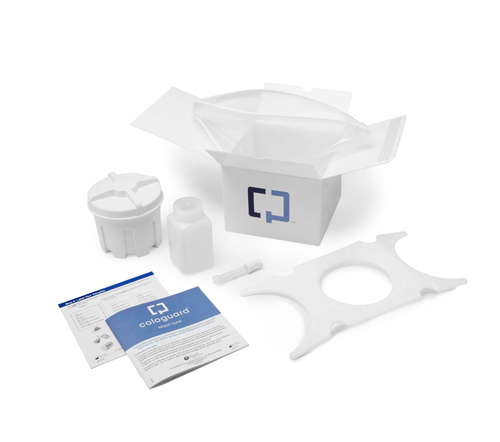
Exact Sciences said it is partnering with Mayo Clinic to launch a study designed to assess more than 150,000 people who have ordered the company’s marketed Cologuard test for colorectal cancer, and follow them for at least seven years to evaluate clinical outcomes.
The Voyage study (NCT04124406) is designed to generate evidence of the impact of Cologuard on colorectal cancer screening, incidence, and mortality rates. The study, formally titled “ Voyage: Real-World Impact of the Multi-target Stool DNA Test on CRC Screening and Mortality,” is one of the largest prospective, observational colorectal cancer screening studies ever conducted, according to Exact Sciences.
According to Exact Sciences, Cologuard is 92% sensitive for colorectal cancer, 69% sensitive for high-risk pre-cancer, and backed by a nationwide user-navigation system, providing 24/7 support to improve compliance with screening.
Over the past five years, Cologuard has helped screen more than 3 million people for colorectal cancer, with nearly half of surveyed users reporting never being screened previously. Today, Cologuard is widely accessible with 95% of users paying nothing out of pocket for the test.
“We applaud efforts to gather evidence on the performance and outcomes of colorectal cancer screening,” Paul Limburg, M.D., M.P.H., AGAF, Exact Sciences chief medical officer, said in a statement. “This study will be instrumental in further demonstrating the clinical utility of Cologuard, a highly accurate, non-invasive screening option, in our collective effort to reduce the colorectal cancer burden.”
Exact Sciences cites American Cancer Society statistics showing that more than 50,000 Americans die from colorectal cancer each year, making it the second-leading cancer-killer in the U.S. The U.S. Preventive Services Task Force in 2016 recommended that screening for colorectal cancer start at age 50 years and continue until age 75 years. In adults ages 76-85, the decision to screen for colorectal cancer should be an individual one, taking into account the patient’s overall health and prior screening history, according to the Task Force.
Cologuard is included in the recommendations of the U.S. Preventive Services Task Force (2016) and National Comprehensive Cancer Network (2016), and also included in the American Cancer Society’s (2018) colorectal cancer screening guidelines.
The company reasons that Cologuard can help improve screening rates among the 106 million Americans eligible for testing, of which an estimated more than 40% aren’t up-to-date with the American Cancer Society’s colorectal cancer screening guidelines, according to U.S. Centers for Disease Control and Prevention National Health Interview Surveys published between 2006 and 2017.
Cologuard was approved by the FDA in August 2014 and remains the only at-home colorectal cancer screening test to win authorization from the agency. Cologuard’s performance was initially validated in a 10,000 patient, prospective trial published in 2014 in The New England Journal of Medicine.













